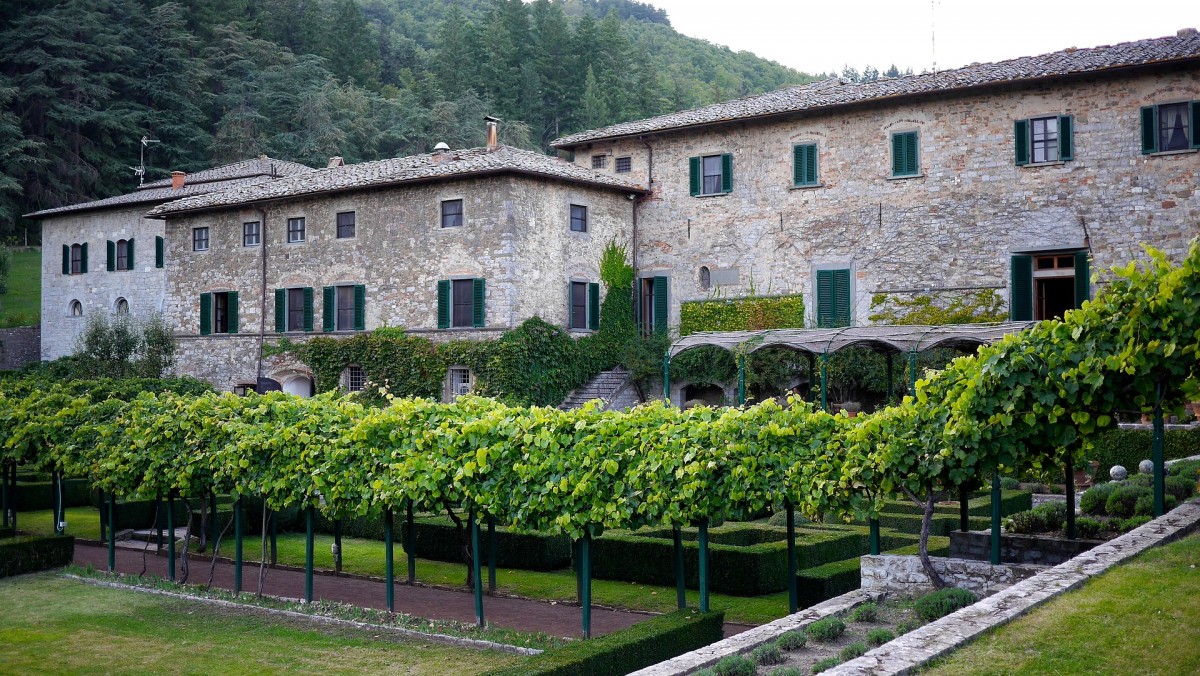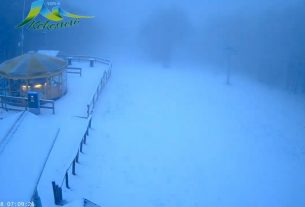An 11th century castle in Tuscany has opened its doors as a location for tourists to come and shelter away from the pandemic after a difficult year for the region.
The Torre Palazonne, in Sovicille near Siena, tempting high walls and watchtower for sheltering away – and it’s British owners are now calling for legislation for tourists to travel safely in Europe in a social bubble.
Tuscany is one of the most popular tourist destinations in Italy but, as with other locations reliant on holiday makers throughout the world, it has been hit hard by the coronavirus pandemic.
However, as Torre Palazzone owner Kitty Walsh has discovered, hiring out a private castle offers a surprisingly easy way for visitors to holiday safely in their own group, away from other tourists.
“All of our staff are in full PPE whenever they come in and work here. But we’ve been very lucky because with a villa holiday it’s a much safer option for a bubble holiday than staying at a hotel for example. Really all of our guests are isolated in their own bubble and they’re very, very safe,” she said.
Walsh said that as well as adjusting to make sure that they are following Italy’s COVID legislation, the staff at Torre Palazzone have introduced activities, and a private chef, which mean visitors don’t need to leave the property and grounds if they don’t want to.
“We can have wine tastings on site, our chef is very happy to offer cookery classes which are great fun, and also we can do things like art workshops on site, you can do some abstract painting or do some painting en plein air (in the open air), we can send an instructor round to help you out with that. Really your imagination is the limit because whatever it is that you would like to do on your holiday here we can arrange for you.”
However, Walsh said that with all the changing rules on quarantines the challenge is still getting tourists to come to Italy. She’s calling for more support from international authorities to enable tourists, particularly from outside of Europe, to reach safe, bubble holiday destinations.
“I think there really needs to be a consensus from the international community that international travel is something that is economically important and that needs to be made as safe as possible as soon as possible, so that people can go back to having holidays. And particularly holidays like this one where the risk of infection is so small because people are just here in their own space.”
Another of Tuscany’s major industries to have suffered during the pandemic is wine, after hotels, restaurants and wine shops around the world were forced to close.
Sales of Italian wine have dropped by 4% this year according to a study by the farmer’s association, Coldiretti, the first time sales have gone down in 30 years.
According to Coldiretti, exports of Italian wine brought in €6.4 billion in 2019. Wine exports are expected to be down 5% compared with last year.
But as Barbara Bollani from Tenuta di Trecciano winery near Siena says, “nature never stopped”, so the workers have continued to go out into the vineyards in masks, working socially distanced at separate vines.
And now they’ve found ways of adapting their business to make sure their wine production still sells.
“We improved our website, creating a more attractive online page where people could find an online form to fill. We delivered wines locally all around these villages, Sovicille but also in town in Siena and some more villages all around us. And improving our sales performance, applying discounts in order to get bigger volumes in orders from Europe, mostly from Europe I have to say,” said Coldiretti.
Meanwhile in the centre of Siena tourists can be seen returning to the city and queuing for its famous landmarks.
Alessandra Aloe, who owns vintage clothes shop Aloe and Wolf, said this is a marked improvement from a few months ago when the city was so empty grass started to grow in the main Piazza del Campo.
She says that, despite feeling fearful about what would happen when businesses attempted to reopen, “slowly, slowly people came back”.
She added most of the tourists have been European, and that despite having less than 20 percent of the number of people in Siena as in previous years it was “not so bad”.
Aloe has also adapted her business to have more of an online presence, and says that the more intimate experience of having fewer customers has actually helped her to make better long term contacts.
euronews.com
pixabay


















